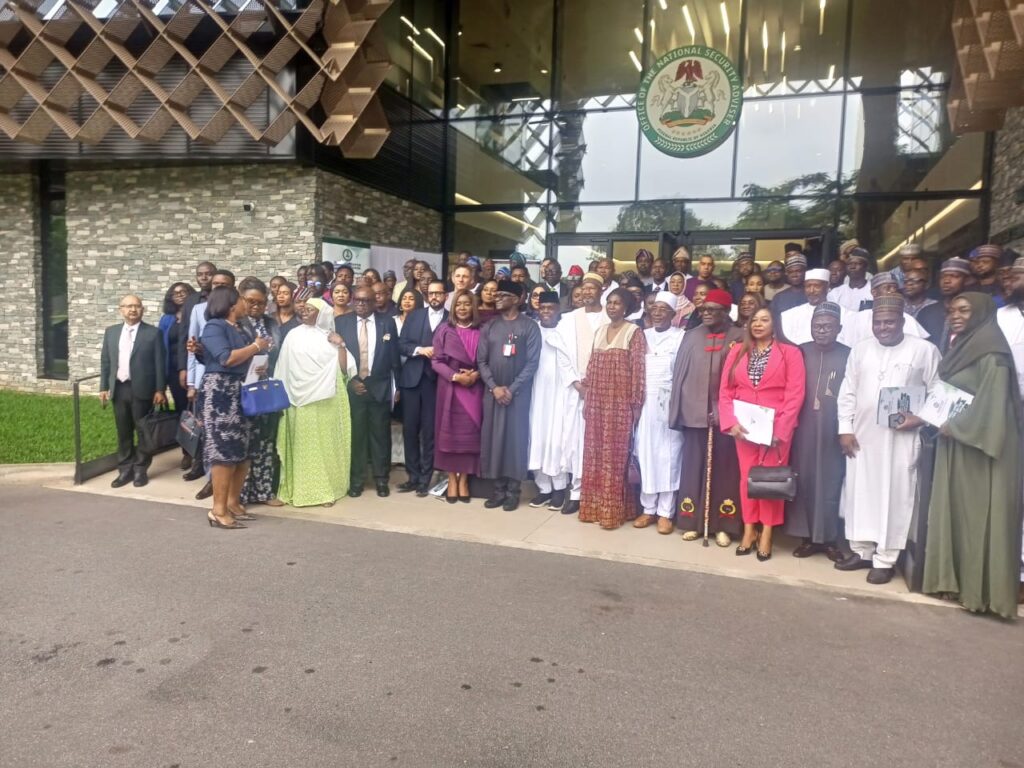…intensifies non-kinetic efforts
The Federal Government is currently reviewing the National Counter Terrorism Strategy (NACTEST), in a bid to contain the complex dimension which violent extremism has assumed.
The National Coordinator (NC), Counter Terrorism Centre (Office of the National Security Adviser), Maj-Gen. Adamu Laka made the disclosure at the high-level consultative dialogue and engagement with the private sector on Friday in Abuja.
According to the NC, the parley was informed by the need for a whole-of-government and whole-of-society approach in tackling terrorism, insurgency, banditry and other violent crimes that constitute threats to national security, public order and safety.
While describing the private sector as an “indispensable partner” in the security management equation, Gen. Laka assured that the NCTC was intensifying its non-kinetic efforts at winning the hearts and minds of citizens to address cases of vulnerabilities.
He said: “We strongly rely on the non-kinetic dimensions of counterterrorism: addressing root causes, building resilience, strengthening trust, and promoting inclusive development.
“Terrorism today has become more complex, transnational, and technologically sophisticated.
“As the engine of innovation, commerce, and infrastructure, the private sector is both a potential target and a critical partner in this fight.
“This mandate is driven by key policy documents, foremost among them the National Counter Terrorism Strategy (NACTEST), which provides the overarching framework for counterterrorism in Nigeria.
“The Strategy is currently under review and will be relaunched in October 2025 by His Excellency, President Bola Ahmed Tinubu, GCFR, Commander-in-Chief of the Armed Forces.
“The Strategy is anchored on four main pillars, one of which is Preventing and Countering Violent Extremism (PCVE), operationalised through the Policy Framework and National Action Plan on PCVE—also presently under review.”
Laka informed that another five-year strategic plan was being developed by the Centre in response to the fluidity of crime.
“Alongside these, the Centre is finalising its Strategic Plan (2025–2030), developed following the President’s upgrade of the NCTC as the Regional Centre of Excellence for Counterterrorism in West Africa and the Sahel in April 2024.
“Together, these instruments will define our national and regional counterterrorism posture.
“But their success depends on genuine engagement with all stakeholders, especially the private sector. Without your active participation, implementation will be incomplete”, he added.
“The Centre recognises the private sector as an indispensable partner in our whole-of-government and whole-of-society approach to counter terrorism and violent extremism in Nigeria.
“While the Centre has engaged with several stakeholders in the past, today’s dialogue is historic—it is the first formal platform that brings the private sector together under one roof, with the clear objective of institutionalising cooperation for national security and resilience”, the two-star General further stated.
He concluded thus: “From financial systems to digital platforms, from energy installations to logistics networks—the risks are real. But so also are the opportunities for partnership.
“At the NCTC, we are committed to creating a safer Nigeria where businesses thrive, investments grow, and innovation flourishes. Security is the foundation of prosperity, and it is our mandate to ensure that foundation remains strong”.















